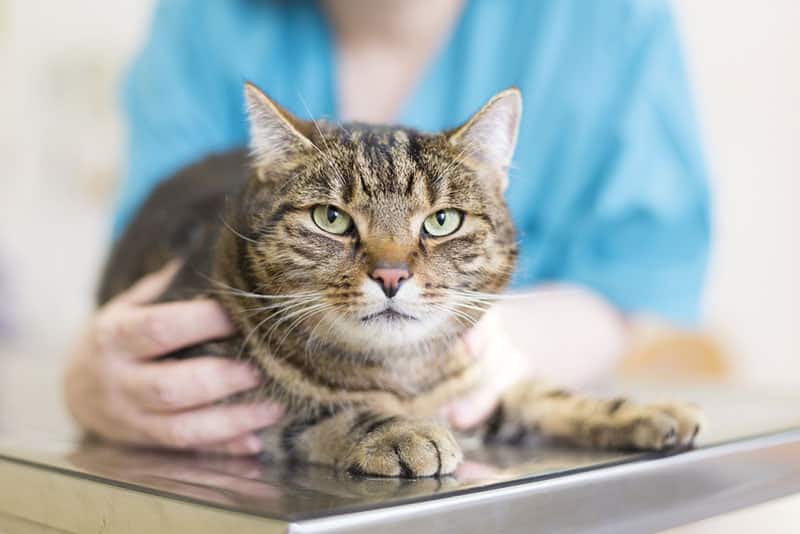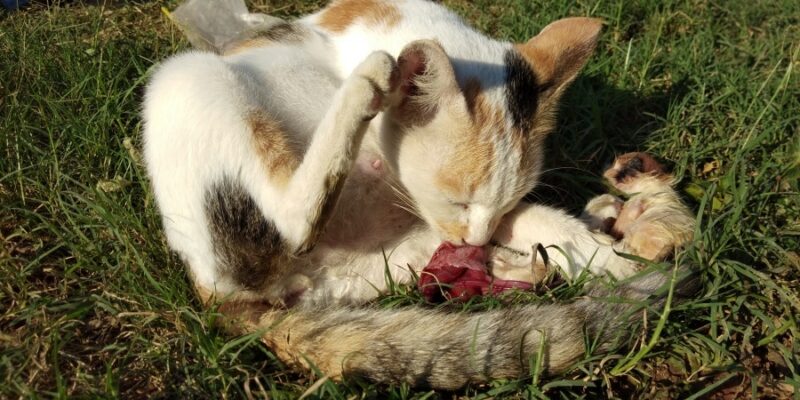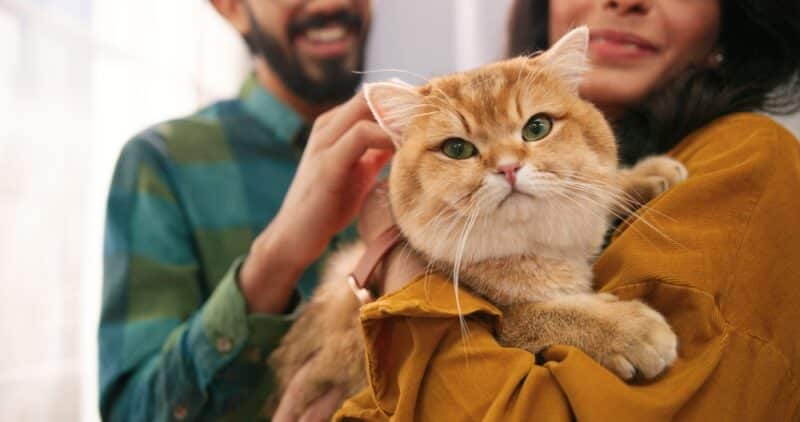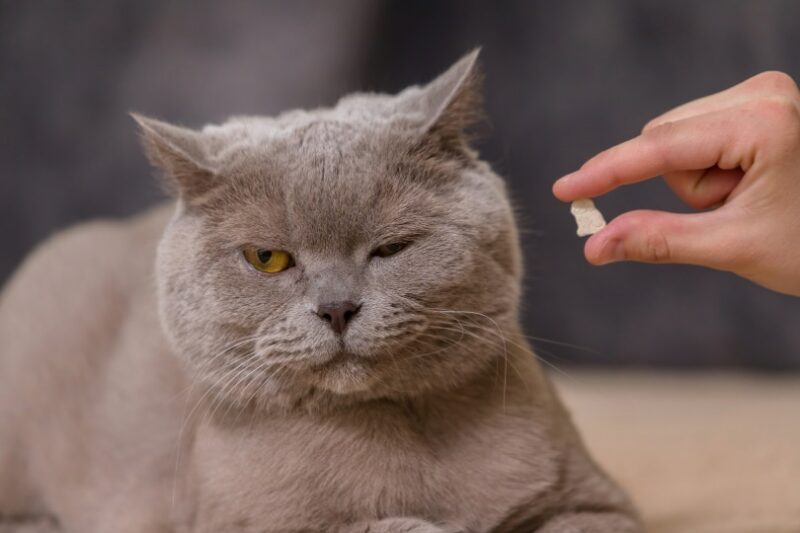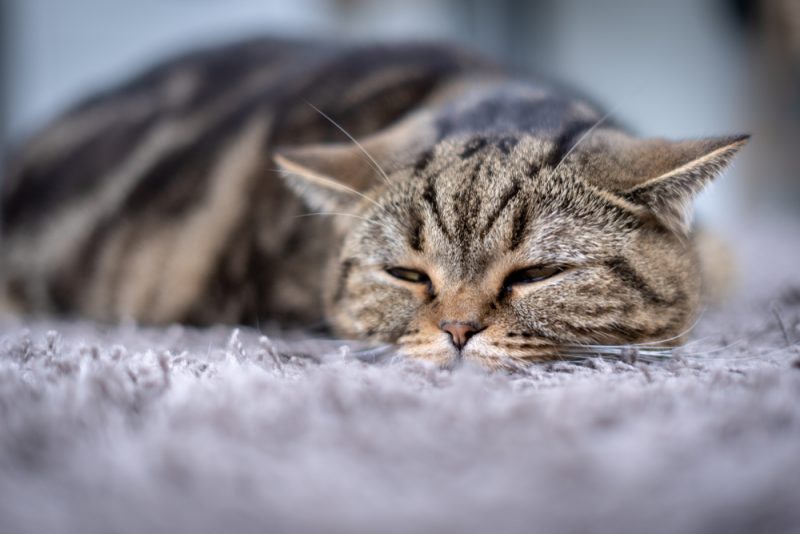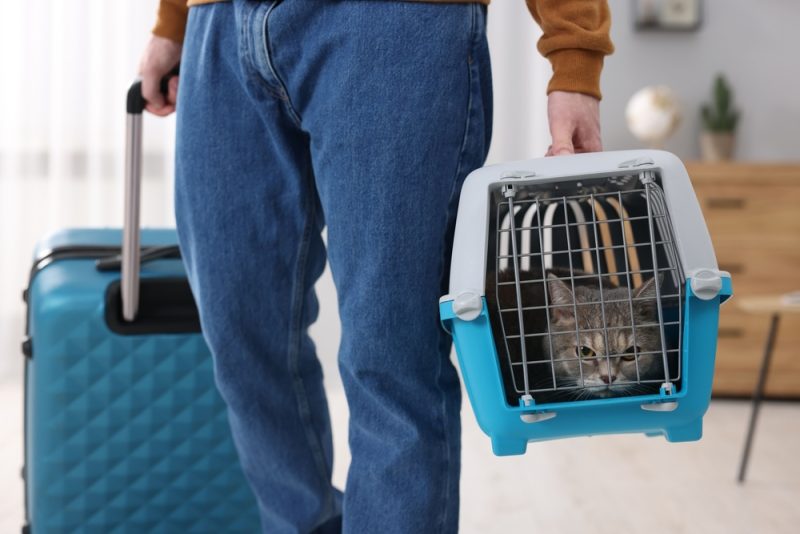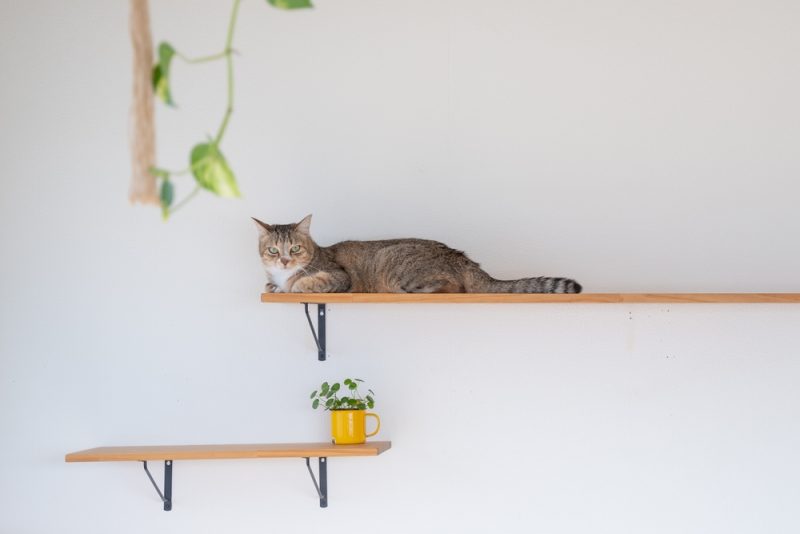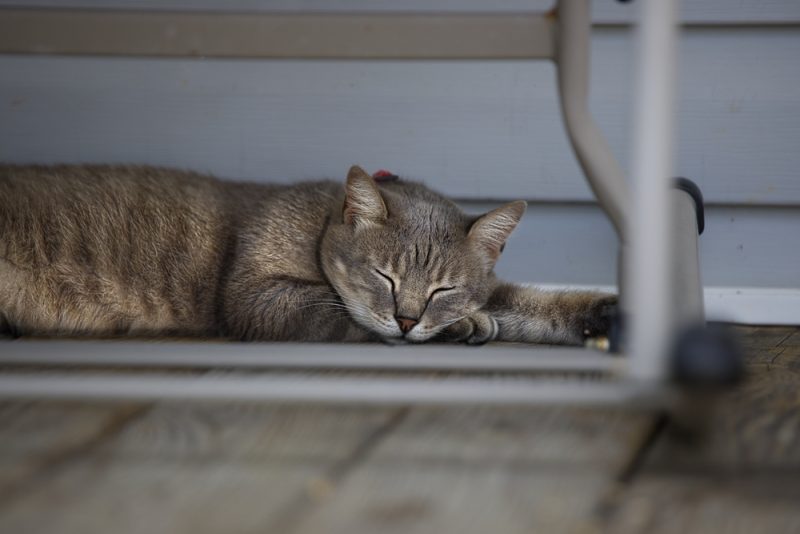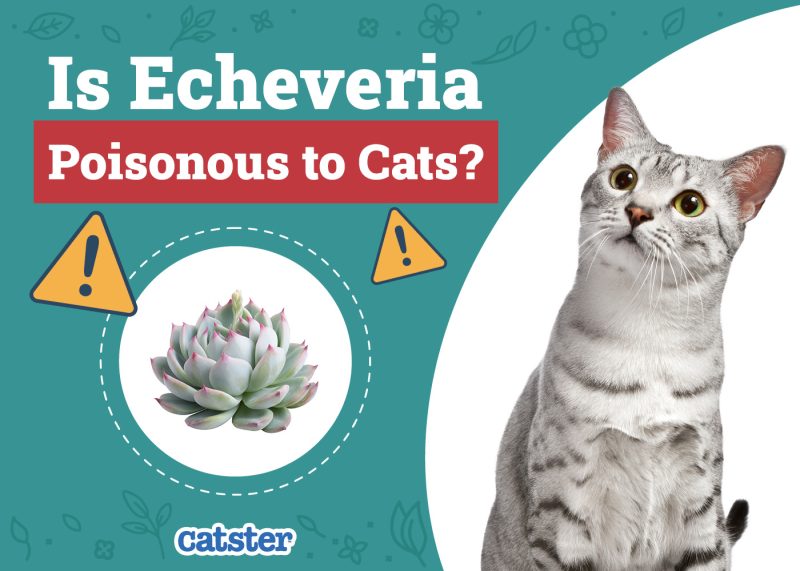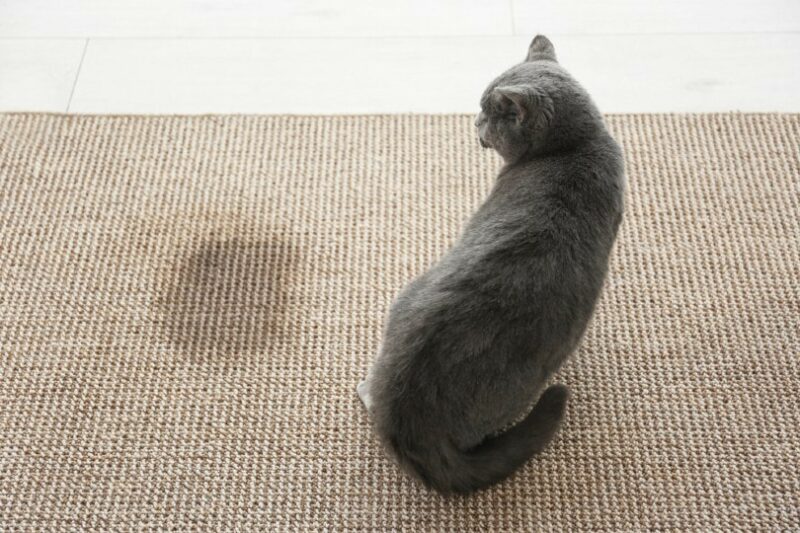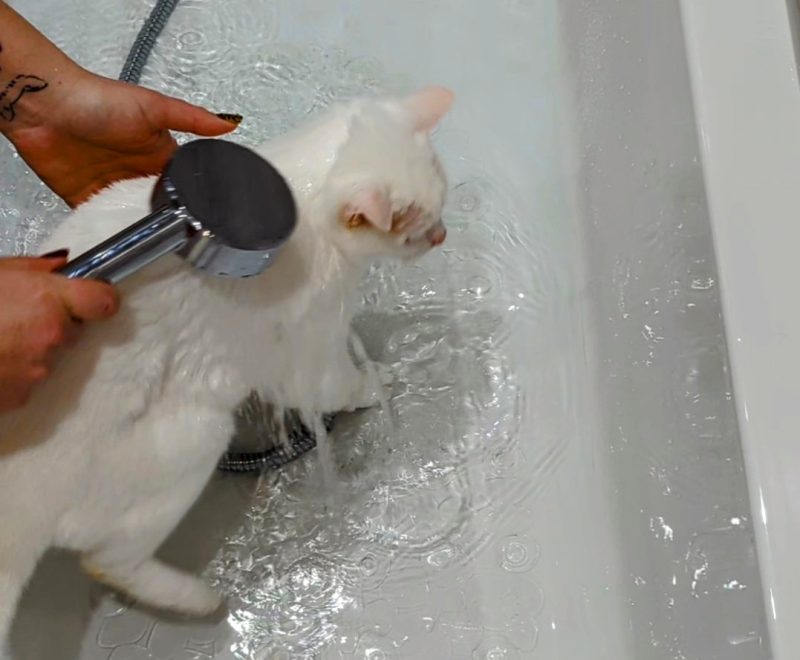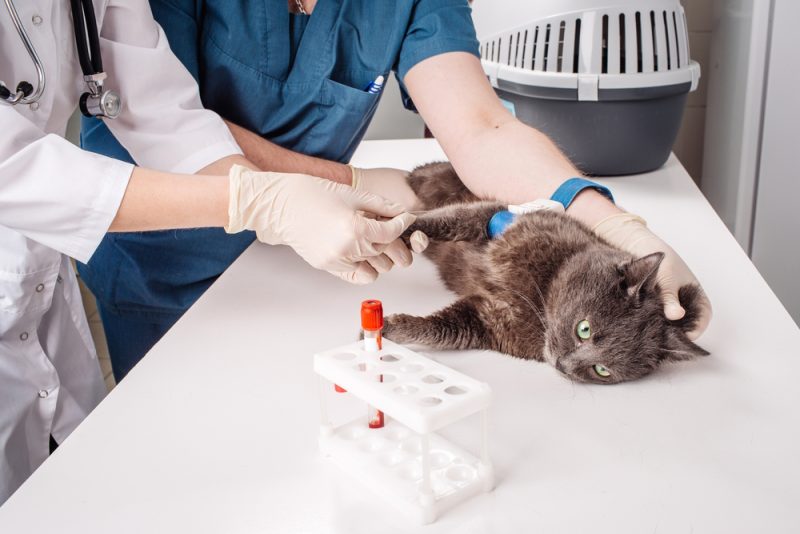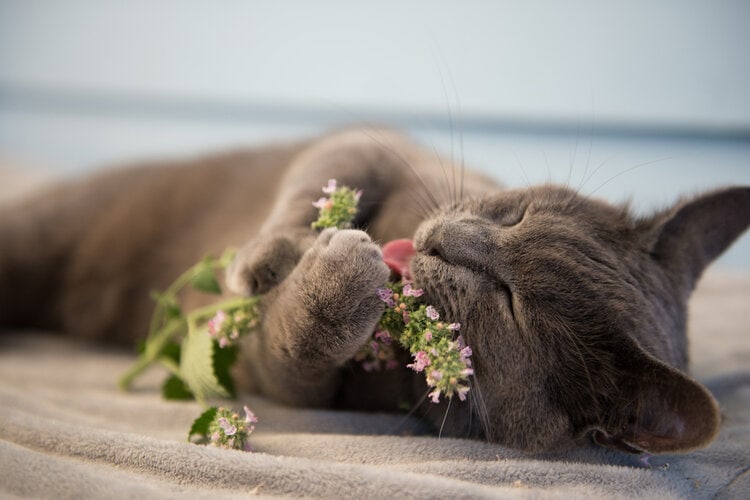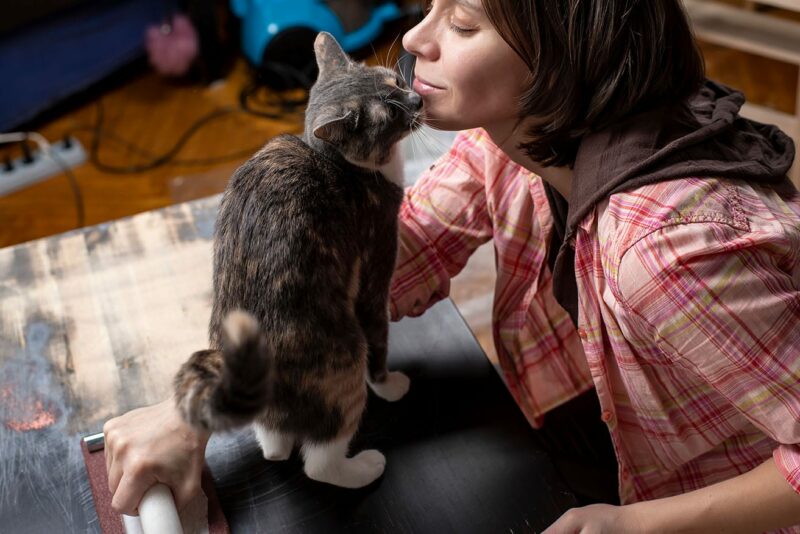If you’ve ever noticed a stinky, fishy smell coming from your cat or a swelling next to their anus, then you’ve likely noticed their anal glands. The anal glands contain chemicals that act as territory markers, although they do serve more than just this purpose. To learn more about your cat’s anal glands, their function, and the potential health issues associated with them, keep reading!

The 10 Interesting Facts About Cat Anal Glands
1. They’re Sacs, Not Glands
The anal glands located to the sides of your cat’s rectum are actually sacs, not glands. The anal sacs are lined with multiple glands that release fluid into the sacs. Anal sac fluid is typically squeezed out when a cat takes a bowel movement, and most cats don’t require any extra attention paid to their anal sacs. Some cats may need extra support to maintain the health and function of their anal sacs, which we’ll get to in just a minute.
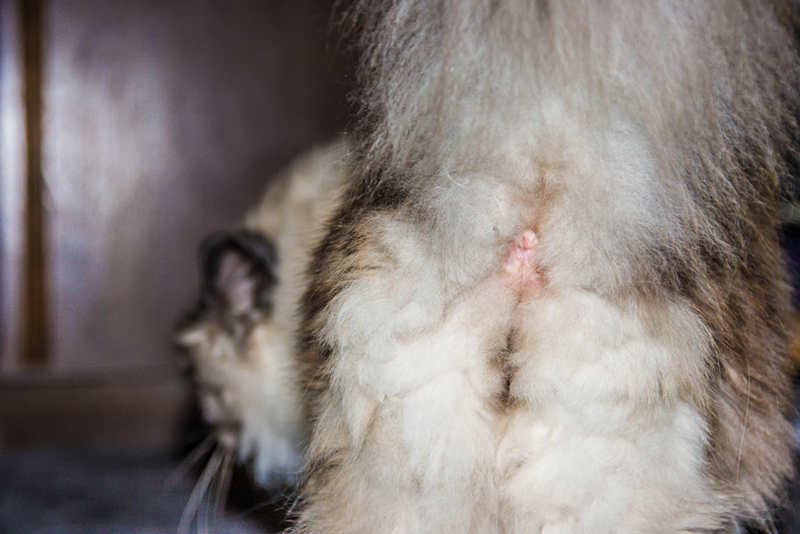
2. They Serve a Purpose in the Wild
In the wild, the anal sac secretions are used by cats to help mark their territory. While the scent is typically strong in most cats, the specific scent varies based on the individual cat’s anal gland secretion chemical profile. Since cats have a much stronger sense of smell than humans, they can more easily detect minute differences between the specific scents of different cats, allowing them to determine just “who” this territory belongs to.
3. There are Two Sacs
Cats are born with two anal sacs—one located on each side of the anus. These sacs are filled with a secretion that is made up of a combination of the following volatile compounds: short-chain free fatty acids (acetic acid, propanoic acid, butanoic acid, and others), trimethylamine, and indole. The chemical profile of a cat’s anal gland secretions is specific to them, though, so the amounts of each chemical in the secretions are highly variable. Regardless, you can expect a slightly fishy and unpleasant smell from the anal glands when they empty or become too full.
Believe it or not, many mammals have anal sacs and even humans have anal glands! Humans have around twelve tiny anal glands on average, which secrete mucin. In humans their purpose is unclear, but they are considered to be vestigial and unnecessary.
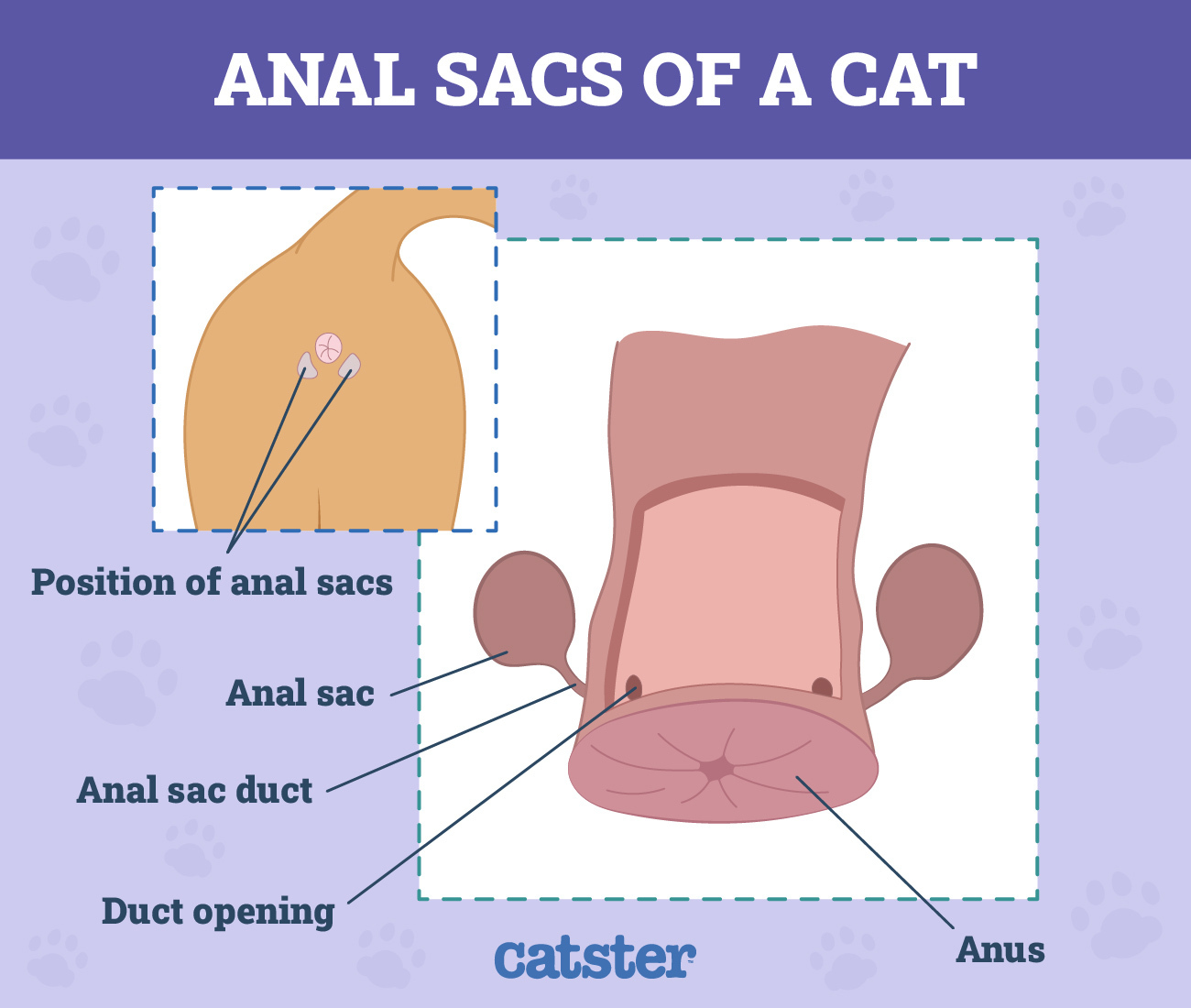
4. They Help Cats Identify Each Other
Anal sacs can be used by cats to help identify each other. While humans identify each other primarily by sight and sound, animals, including cats, often use scent as a means of identification as well. This means that when cats are sniffing each other’s butts, they are trying to identify each other. Butt sniffing can also help cats learn about each other’s reproductive status.
5. They Can Become Impacted
In some cases, a cat’s anal glands may not empty properly when they poop. When this continues to occur over time, the secretions in the sacs may begin to thicken, making it impossible for the sacs to express themselves naturally.
Impacted anal sacs can be extremely painful for cats, and they do require medical intervention to fix. If you suspect your cat has impacted anal glands, it’s extremely important that you don’t attempt to empty them yourself. Your veterinarian should be consulted for assistance to ensure you don’t unintentionally do more harm than good.
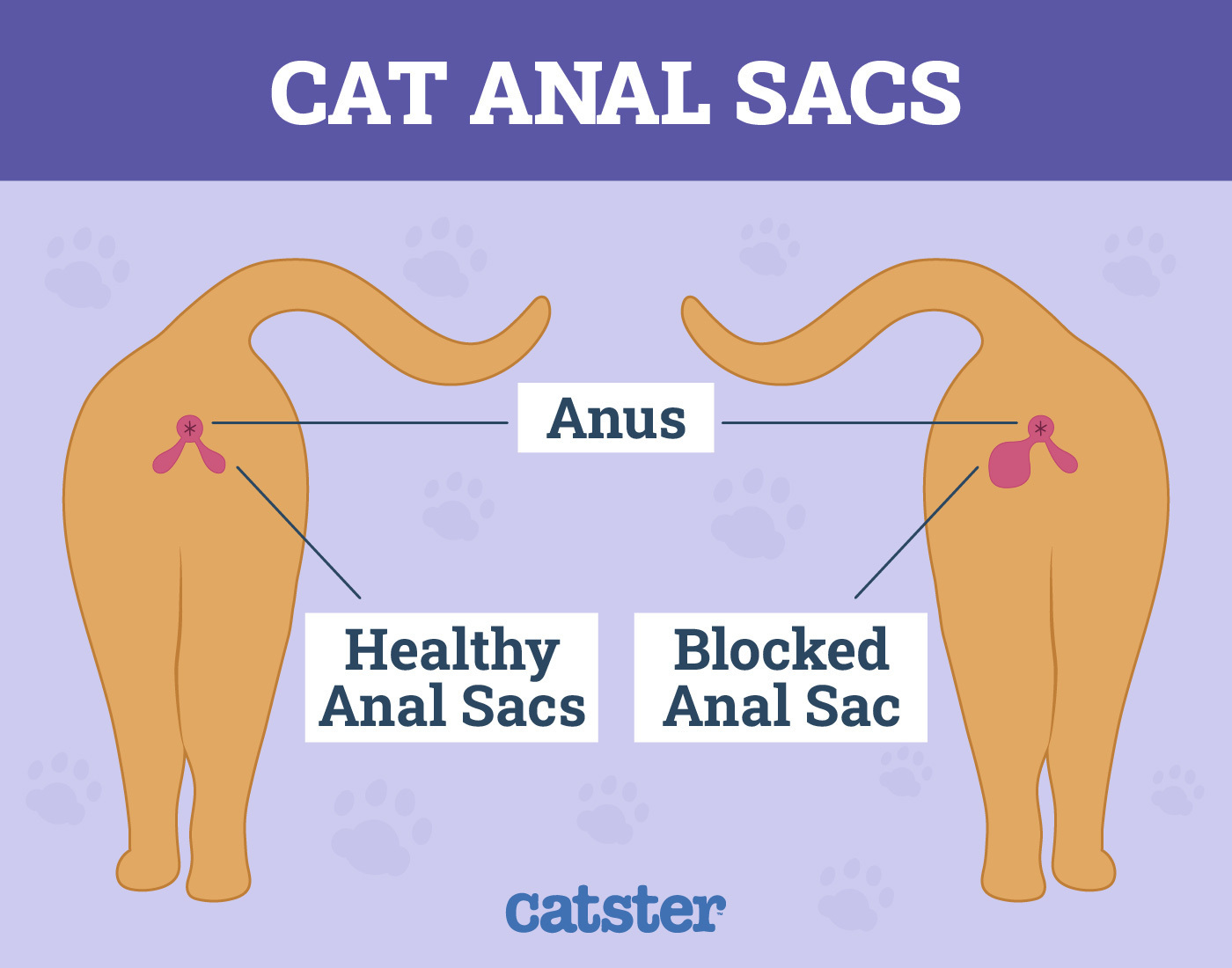
6. Some Cats May Be at Higher Risk of Impaction
Unfortunately, some cats are naturally at higher risk of developing impacted and infected anal glands. In some cases, this is due to anatomical anomalies in your cat’s anal region. Anything that causes loose stools or diarrhea will also mean that the anal sacs may not empty fully when a cat passes feces, leading to impaction.
Obese cats are also at risk of developing anal gland problems. This is related to multiple issues. Obese cats are less likely to routinely groom themselves properly, and proper grooming can help to release the anal glands. They also tend to be less active than thinner, healthier cats, which can lead to a less active digestive tract.
Sedentary cats and those that suffer from constipation or conditions like megacolon are more at risk for anal gland problems than other cats because their infrequent bowel movements may allow the anal gland secretions to thicken and become impacted.
7. Cats Often Hide Their Pain
You may not realize that your cat is suffering from a problem with their anal glands until the problem is severe. Dogs usually make anal gland problems known through scooting or excessive licking. Cats, on the other hand, tend to hide their pain very well, which means that the changes in your cat’s behavior may be subtle.
If you notice your cat becoming lethargic, hiding more, showing aggression or signs of stress, or excessively grooming their backside, then you should have them seen by a vet. If you notice any swelling, unusual redness, or drainage around the anus, then your cat should be seen as soon as possible.
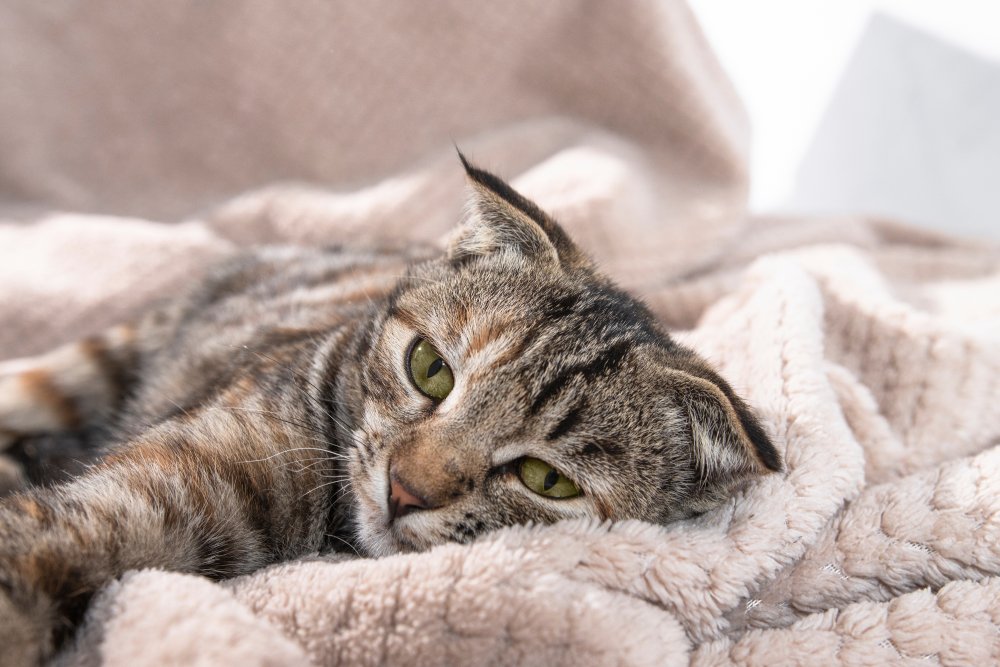
8. They Can Rupture
Impacted anal sacs often get infected. The sacs can only swell so much with material before they can’t stretch any further. When this happens, anal sacs can rupture. This means that the pressure will be relieved through the path of least resistance. When the anal sac exit is blocked, the gland will rupture outward through the external sac wall.
After rupture, the draining may be any combination of thickened anal gland fluid, blood, and pus. Anal sac ruptures are extremely painful, have your cat seen by a vet as soon as possible and don’t attempt to treat a ruptured anal sac at home.
9. Surgery May Be Necessary
In rare cases, it may become necessary to have a cat’s anal glands surgically removed. This is usually only considered if a cat has recurrent and persistent issues that are not responding adequately to medical management. There can be a reduction in anal tone after the surgery meaning that some cats will experience a loss of bowel control. This is usually only a temporary problem however which typically resolves in a few days to weeks after the surgery.
10. Some Home Remedies May Help
There are a few things you can do at home to help manage anal sac issues if they seem to be recurrent in your cat. Dealing with any digestive issues and keeping your cat at a healthy weight are both important. Over-the-counter anal gland supplements, and increasing fiber in the diet, can also help reduce the risk of recurring anal sac problems. It’s important that you talk to your vet about the home management options, though. Some cats may require more intensive interventions that require routine vet visits to manage.
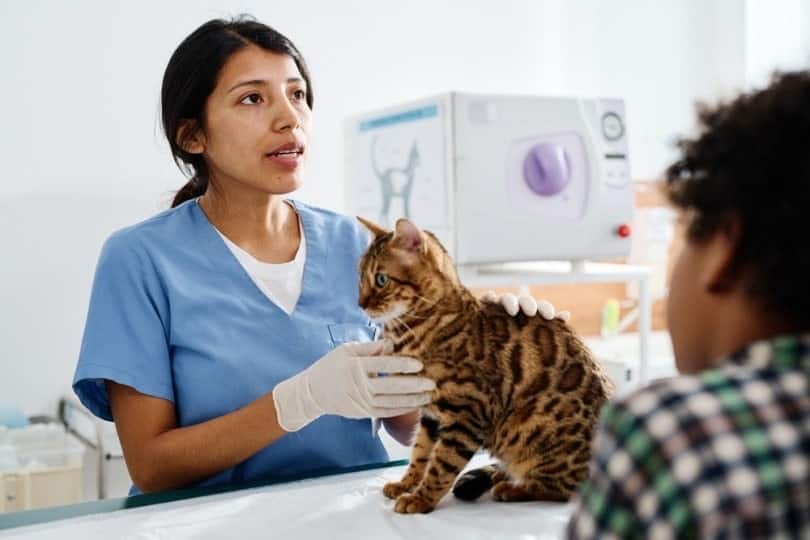
 Conclusion
Conclusion
Fortunately, anal sac problems are generally less common in cats than in dogs, but when they occur they are stressful for both your cat and you. While dogs don’t like their anal sacs messed with, cats are even less willing to have someone squeezing on their painful anus. Always consult your vet if you think your cat is experiencing anal gland issues before you begin any type of treatment or management at home. Without proper care, you may unintentionally do more damage to your cat’s anal glands.
See also:
Featured Image Credit: brodtcast, Shutterstock
